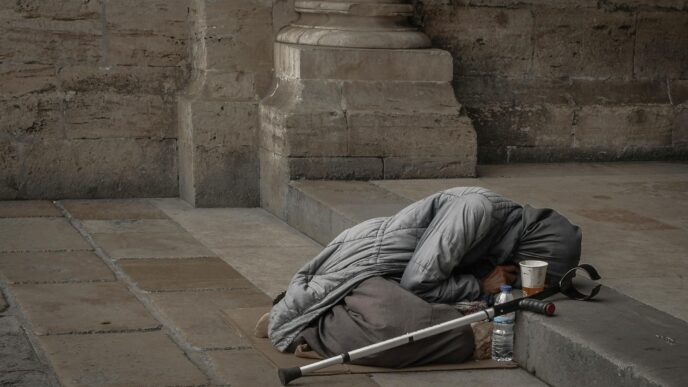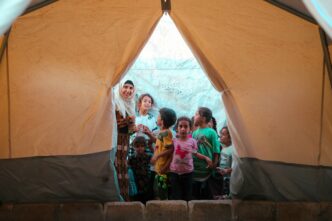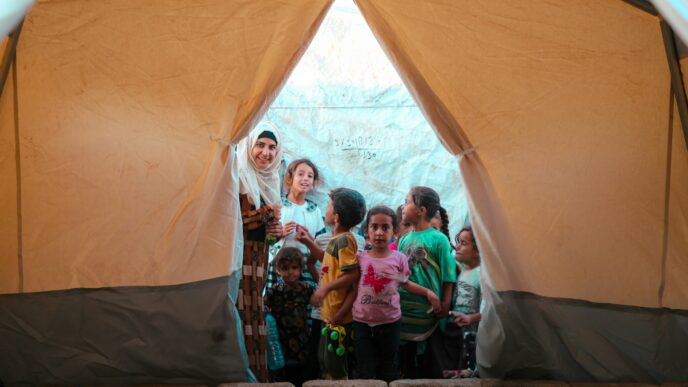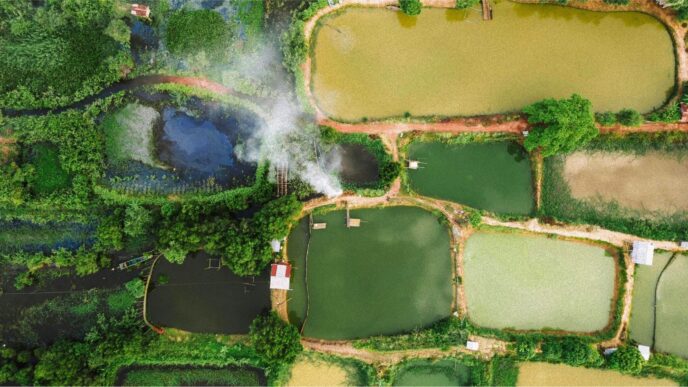Humanitarianism is not just an act of generosity in Islam—it is a divine command. From the Quran to the teachings of Prophet Muhammad (PBUH), service to humanity is deeply embedded in Islamic ethics. It is not optional, nor is it confined to financial charity alone. It is a comprehensive obligation—to uplift the poor, stand with the oppressed, care for orphans, and work toward justice.
Yet, in today’s world, Muslim humanitarianism is often overlooked, misunderstood, or even vilified. Muslim-led charities play a critical role in disaster relief, refugee aid, medical care, and poverty alleviation across the world. However, they face disproportionate scrutiny, political restrictions, and challenges in funding.
So, what does it mean to be a Muslim humanitarian today? How does faith drive action, and what must be done to protect and strengthen the impact of Muslim-led humanitarian efforts?
The Islamic Foundations of Humanitarianism
A Quranic and Prophetic Legacy of Service
The Quran repeatedly emphasizes the duty to help others, equating service to humanity with devotion to Allah:
“And they give food in spite of love for it to the needy, the orphan, and the captive, [saying] ‘We feed you only for the sake of Allah. We do not seek from you reward or thanks.'” (Quran 76:8-9)
This verse highlights selfless service, a key principle of humanitarianism. A Muslim does not help others for recognition or personal gain but because compassion is a core part of faith.
Prophet Muhammad (PBUH) embodied this in his life. He was not only a leader but also a social activist, a protector of the vulnerable, and an advocate for justice. His teachings reinforced the rights of the poor, the dignity of laborers, and the need for a fair society:
- “The best of people are those who are most beneficial to others.” (Ahmad, 23499)
- “He is not a believer whose stomach is full while his neighbor is hungry.” (Muslim, 1728)
- “The one who cares for an orphan will be with me in Paradise like this.” (Bukhari, 5304)
From zakat (obligatory charity) and sadaqah (voluntary charity) to waqf (endowments), Islam institutionalized humanitarianism as an economic and social framework. This structured approach continues to shape Muslim humanitarian efforts worldwide.
Faith in Action: The Role of Muslim Humanitarians
The Spiritual Drive Behind Service
For Muslim humanitarians, their work is more than just charity—it is an act of worship. Whether it is:
- Providing food for the hungry,
- Building wells in drought-stricken villages,
- Delivering emergency aid in war zones, or
- Standing up for social justice,
these acts are considered forms of ibadah (worship). They are expressions of gratitude to Allah and a means of fulfilling one’s duty toward society.
Muslim-Led Humanitarian Efforts Making a Difference
Despite limited recognition, Muslim-led humanitarian organizations are at the forefront of global relief efforts:
- Islamic Relief operates in over 40 countries, delivering emergency aid, medical support, and long-term development projects.
- Penny Appeal and Muslim Hands run food programs, orphan sponsorships, and clean water projects worldwide.
- Red Crescent Societies, the Islamic counterpart to the Red Cross, provide disaster relief in conflict zones such as Palestine, Syria, and Yemen.
Beyond large NGOs, grassroots Muslim initiatives are transforming local communities. Mosques, community groups, and individual donors support refugee families, domestic abuse survivors, and the homeless in the UK, Canada, and across Europe.
However, despite their impact, Muslim humanitarians face serious challenges.
Challenges Facing Muslim Humanitarians
Islamophobia and Political Barriers
One of the greatest obstacles facing Muslim-led charities is Islamophobia in international aid policies. In the post-9/11 world, counter-terrorism laws have disproportionately targeted Muslim charities, restricting their access to funding and banking services.
- Accounts of Muslim charities have been closed without justification by major banks. (The Guardian, 2023)
- Counter-terrorism laws have been used to block aid to war-torn regions like Gaza and Syria, where Muslim charities play a crucial role. (Charity & Security Network, 2022)
- Media bias frames Muslim humanitarian efforts within a security narrative, undermining their credibility. (MIT Media Lab, 2021)
While Christian and secular charities receive government backing and public trust, Muslim-led initiatives often face suspicion, despite strict transparency and compliance with regulations.
Funding Challenges and Systemic Inequality
Due to these restrictions, Muslim charities struggle to secure institutional funding, relying heavily on private donations from the Muslim community. This makes long-term projects difficult to sustain and limits their ability to scale operations.
Moreover, mainstream aid organizations receive significantly more funding for crises affecting Muslim populations—yet they lack the cultural and religious understanding to operate effectively in these regions. Muslim-led organizations are best positioned to serve these communities, yet they remain underfunded and underrepresented.
The Global Impact of Muslim Humanitarian Efforts
Despite these challenges, Muslim-led humanitarianism has transformed lives worldwide. Some key successes include:
- Disaster Relief in Syria and Turkey: Muslim charities were among the first responders to the 2023 Turkey-Syria earthquake, providing medical aid and food assistance.
- Rohingya Refugee Support: Islamic NGOs continue to support Rohingya refugees in Bangladesh, supplying shelter and education programs.
- Medical and Education Programs: Organizations like Doctors Worldwide provide free healthcare in underserved regions, while Muslim Hands builds schools in Africa and South Asia.
Muslim charities are also increasingly involved in interfaith humanitarian work, collaborating with Christian and secular NGOs to amplify their impact.
How to Strengthen Muslim Humanitarianism for the Future
1. Institutionalize and Professionalize the Sector
Muslim charities must adopt stronger governance, transparency, and professional development to compete with larger humanitarian organizations.
2. Diversify Funding Streams
Instead of relying solely on private donors, Muslim NGOs should explore institutional grants, impact investments, and ethical fundraising models.
3. Engage Youth in Humanitarianism
The next generation must be empowered through:
- Volunteer programs
- Career pathways in humanitarian work
- Education on Islamic social justice principles
4. Counter Islamophobia Through Narrative Change
Muslim humanitarians must take control of their own story, using media, advocacy, and public engagement to challenge negative portrayals and highlight their impact.
5. Strengthen Local and Global Partnerships
Collaboration with non-Muslim aid agencies, governments, and faith-based groups can create stronger networks for emergency response and policy advocacy.
Conclusion: A Divine Duty, A Global Responsibility
Being a Muslim humanitarian is not just about giving—it is about embodying Islam’s commitment to justice, mercy, and collective responsibility.
In a world of rising inequality, conflict, and displacement, the need for Muslim-led humanitarianism has never been greater. The Prophet (PBUH) set the example, and today, it is upon us to carry that legacy forward—not as an option, but as a divine duty.
The question is not whether we should serve, but how much more we can do.
“Whoever saves a life, it is as if they have saved all of humanity.” (Quran 5:32)
Now is the time to live up to that responsibility.













